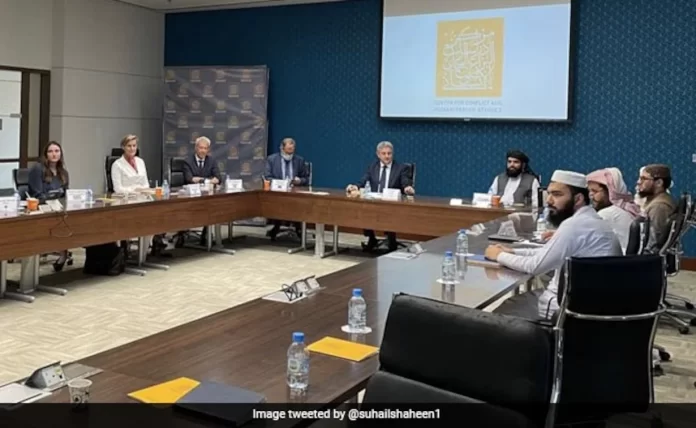EU ambassadors met the Taliban spokesperson, Suhail Shaheen, on June 20, 2022, in Doha. The news comes as the Taliban continue with its endeavors for international recognition. In the meeting, the high-level EU delegation underscored its humanitarian commitment as the largest donor to Afghanistan. Other crucial points on the agenda were: better protection of vulnerable groups, transparent budgets, the supremacy of rule of law and justice, and the inclusion of women, and girls’ education in Afghanistan.
Besides its recent meeting with the EU delegation, the Taliban has also met representatives from Uzbekistan. The meeting was held last week and centered on bilateral connections between Afghanistan and Uzbekistan, Afghanistan’s interactions with the international community, the early start of significant economic initiatives, and cooperation between the two nations.
Abdulaziz Kamilov, Uzbekistan’s national security council advisor, said that Uzbekistan and Afghanistan have begun ‘a new chapter’ in bilateral ties. A high-ranking official of the Afghan caretaker government will also be invited to the international meeting on Afghanistan that will be held in Uzbekistan in July, he added.
Since assuming power on August 15, 2021, the Taliban has attended and held several meetings with the international community representatives and put forth the de facto group’s need for recognition – an ‘impediment’ they say in the way of a prosperous and stable Afghanistan. But there are regular reports of human rights violations and curtailment of civil liberties under the Taliban regime – and that is the actual impediment to its acceptance as a representative, legitimate government.
The riveting factor in all this is that the world leaders and representatives of eminent, global fraternities are directly engaging with the Taliban, expecting them to live up to the international community’s expectations, but the key actors and drivers of change in-between, such as think tanks and civil society are bound by the same global community not to interact with the Afghan government directly. At the same time, the EU and other stakeholders expect that there is a way for these intermediary catalysts to influence the de facto group’s policies and actions. If the state representatives and international bodies can directly speak to the Taliban, then why not the civil society and other similar actors?




